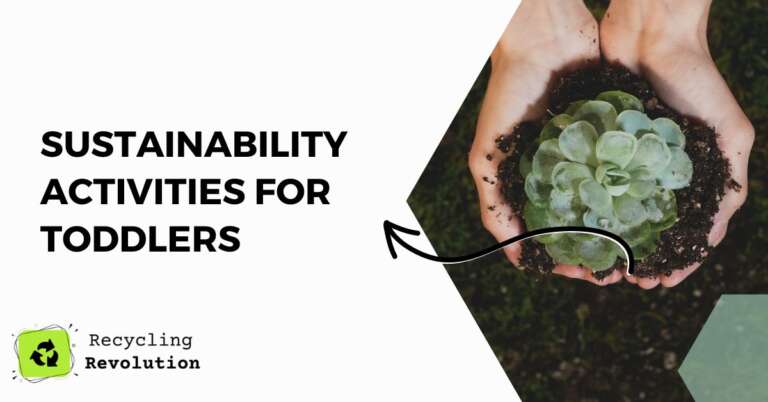Sustainability is the practice of meeting our own needs without compromising the ability of future generations to meet theirs. It’s essential for the health of our planet and future generations.
But did you know that even toddlers can play a crucial role in promoting sustainability?
By involving your little ones in eco-friendly activities, you can help them develop a lifelong appreciation for the environment. Here are some examples of sustainability activities for toddlers.
Sustainability activities for toddlers
Plant a Garden
Gardening offers numerous benefits for both the environment and children. It can help reduce waste, conserve resources, and provide a natural habitat for wildlife. For kids, it’s an excellent way to learn about nature and develop a sense of responsibility.
To start a simple garden with your toddler, consider:
- Using recycled containers, like yogurt cups or egg cartons, as planters.
- Planting easy-to-grow vegetables, such as lettuce, spinach, or cherry tomatoes.
Reduce, Reuse, Recycle
Teaching the three R’s—reduce, reuse, and recycle—to young children is a great way to promote sustainability. Here are some fun activities to engage your toddler in the three R’s:
- Create art with recycled materials like cardboard, paper, or plastic containers.
- Make a compost bin together and learn about decomposing organic matter.
- Collecting food scraps, such as fruit and vegetable peels, and putting them into a compost bin, turning the compost, and using the compost to fertilize plants.
Go on a Nature Walk
Spending time in nature offers many benefits for your toddler, such as fostering a love for the environment and improving physical and mental health. To make a nature walk interactive and educational, try:
- Identifying different types of trees or plants.
- Collecting litter along the way and disposing of it properly.
Turn off Lights and Water
Conserving energy and water is a vital aspect of sustainability. To get your toddler involved, consider:
- Making a game out of who can turn off the most lights in the house.
- Reminding them to turn off the faucet while brushing their teeth or washing their hands.
- Turning off lights when leaving a room, unplugging electronics when they’re not in use, and using natural light instead of artificial light.
Conclusion
Teaching toddlers about sustainability is essential for raising environmentally conscious individuals. By involving them in activities such as gardening, practicing the three R’s, spending time in nature, and conserving resources, you can help them understand and incorporate sustainability into their daily lives. Sustainability is important for the future of our planet, and it’s never too early to start teaching children about it.
FAQs
How do I teach my toddler about sustainability?
Engage your toddler in activities like planting a garden, practicing the three R’s (reduce, reuse, recycle), spending time in nature, and conserving resources. These activities will help them develop an understanding and appreciation for the environment.
What are examples of sustainable activities?
Examples of sustainable activities for toddlers include gardening, creating art with recycled materials, going on nature walks, and learning about conserving energy and water.
What are the 5 Rs of sustainability for kids?
The 5 Rs of sustainability for kids are: reduce (using fewer resources), reuse (repurposing items instead of discarding them), recycle (turning waste materials into new products), repair (fixing broken items instead of replacing them), and refuse (saying no to unnecessary items, especially single-use plastics).

